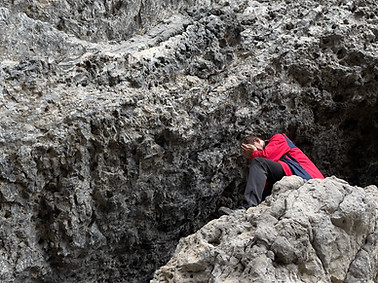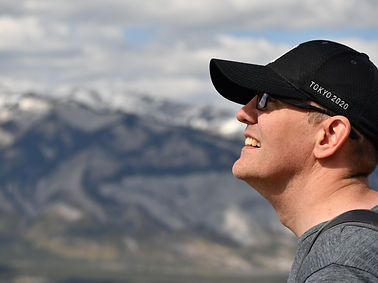

Our Work
Faith-based questions deserve thoughtful responses. Each topic below can be adapted for children, youth, young adults, adults, or leadership training sessions. Whether you’re planning a Sunday school series, youth retreat, conference seminar, or leadership development night, we’ll tailor the content to your audience’s age, spiritual maturity, and context.

Foundations of Faith
-
What Is Truth? And Why Does It Matter?
In a world full of conflicting messages, what is truth—and can we really know it? This session explores the nature of truth, how it relates to God’s character, and why it matters for everyday faith. -
Arguments for God’s Existence
From the origin of the universe to the moral law written on our hearts, this talk presents logical, approachable arguments for the existence of God using tools like the Kalam, Moral, and Fine-Tuning arguments. -
Evidence for the Resurrection
Is there any good reason to believe Jesus rose from the dead? This session introduces the historical evidence and key arguments that make the resurrection one of the most well-supported events in ancient history. -
Is Jesus Just a Copycat?
Did Christianity borrow from pagan myths? This talk addresses claims that Jesus is just another version of dying-and-rising gods from mythology and offers clarity on what the historical record actually shows.
Tough Questions & Challenges
-
Why Does God Allow Evil?
A biblical and philosophical exploration of the Problem of Evil—one of the hardest questions Christians face. Chris addresses both emotional and intellectual aspects with compassion and clarity. -
Are Christmas and Easter Pagan?
Popular internet claims say Christian holidays are pagan in origin. This session explores the historical roots and biblical significance of Christmas and Easter. -
If God is Real, Why Doesn’t He Just Show Up?
This talk addresses the hiddenness of God and explains why God often works through evidence, testimony, and relationship rather than dramatic displays. -
Why Are There So Many Religions?
If Christianity is true, why are there so many religions? This session introduces comparative worldviews and explains how Christianity uniquely addresses life’s big questions. -
How Can I Know Christianity Is the One True Faith?
In a pluralistic world, this talk explains why Christianity’s truth claims stand apart through historical evidence, coherence, and fulfilled prophecy.


The Bible: Trust, Truth, and Translation
-
How Did We Get the Bible?
This session traces how the Bible was written, preserved, and recognized as Scripture. It’s a clear look at canon formation, manuscripts, and how God worked through history to preserve His word. -
Can We Trust the Bible?
How do we know the Bible hasn’t been changed? This talk explores manuscript evidence, historical reliability, and fulfilled prophecy as reasons to have confidence in Scripture. -
Understanding Bible Translations
Why are there so many Bible versions? This session explains the difference between formal and dynamic translations, why different churches prefer different versions, and how to choose wisely. -
How to Read the Bible Well
Reading the Bible is different than reading a textbook or novel. This talk gives an overview of genres, context, and how to avoid common misinterpretations.
Faith & Science
-
Is Science in Conflict with Faith?
Many believe science and Christianity are at odds—but are they? This talk shows how faith and science are not enemies but allies in exploring God’s creation. -
What About Evolution, the Big Bang, and Aliens?
Can Christians believe in evolution? What if the Big Bang is true? Would aliens disprove Christianity? This engaging session provides balanced answers to these “out-there” but very real questions.


Equipping the Church
-
Training Leaders to Create Safe Spaces for Questions
This session helps pastors and ministry leaders design environments where questions are welcomed and doubts are engaged with grace and truth. -
How to Answer Tough Questions with Gentleness & Respect
Inspired by 1 Peter 3:15, this talk models how to give thoughtful, age-appropriate answers that don’t compromise truth or dismiss people’s concerns. -
How to Inoculate Kids & Youth Against Doubt
A proactive approach to apologetics for young people. Learn how to introduce difficult topics in safe, constructive ways before they encounter them elsewhere. -
Discipleship Through Apologetics
Apologetics isn’t just for debate—it’s a tool for spiritual growth. This session explores how asking hard questions and finding good answers can deepen faith. -
What is Apologetics—and Why Does It Matter?
A foundational session for churches unfamiliar with apologetics. It casts a vision for how apologetics strengthens discipleship, outreach, and resilience in the faith.
Christianity & Culture
-
End of Life and Medical Assistance in Dying (MAiD)
A sensitive yet important topic exploring how Christians can think biblically about suffering, dignity, and death. Includes discussion of ethical principles and pastoral care approaches. -
What Is Sex For? Christian Sexual Ethics Explained
This session explores God’s design for sex, singleness, and marriage—offering a positive, biblical view that invites reflection, responsibility, and hope. -
10 Tough Questions Christians Need to Be Ready For
This fast-paced session covers a range of common challenges to the faith, including hypocrisy, hell, exclusivity, science, justice, and more—equipping believers with clarity and compassion.

Want to explore this more? Reach out to talk with us. If you'd like to connect about speaking to your group or church, book a call with Chris to talk about this further using the form below.